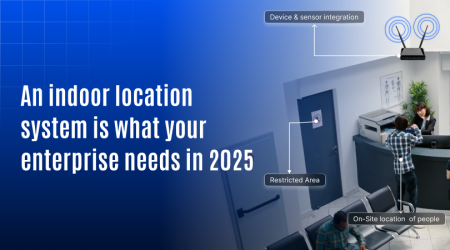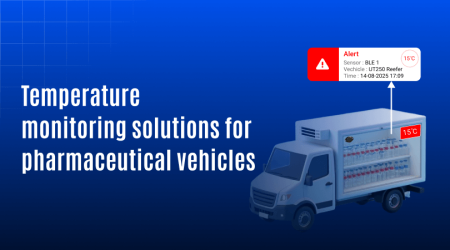Revolutionizing Fuel Management in South Africa

Fuel prices in South Africa have experienced significant fluctuations recently, impacting businesses across various industries. In May 2024, the retail price of 93 Unleaded petrol reached around R25.15 per litre in inland areas, marking a significant rise from earlier months. Although there was a slight reduction by July 2024, prices remain substantially higher than in previous years.
This volatility is driving companies to adopt smarter fuel management solutions that help control costs, improve efficiency, and navigate the unpredictable fuel market.
These price changes underscore the challenges businesses face in managing fuel costs effectively. For organizations relying heavily on transportation, these fluctuations can strain budgets and impact profitability. Traditional methods of fuel management, such as manual tracking and basic spreadsheets, often fall short in providing the real-time insights needed to navigate this unpredictability.
That’s where fuel management software comes into play. By offering real-time tracking, automated reporting, and predictive analytics, this technology empowers businesses to monitor fuel consumption accurately, detect anomalies promptly, and optimize fuel usage across their operations.
Let’s explore how fuel management software is revolutionizing fuel management in South Africa, helping businesses tackle rising fuel costs and enhance operational efficiency.
The rising fuel prices in South Africa
The rising fuel prices in South Africa present significant challenges for the economy and citizens alike. It is impacted by factors such as Global Crude Oil Prices, Exchange Rates, Taxes, and Levies, Distribution, and Logistics. Understanding the underlying factors and exploring potential solutions is crucial for mitigating the impact on the cost of living, transportation, and overall economic stability.
Understanding fuel management software
Fuel management software is a powerful tool designed to help businesses effectively manage & optimize their fuel consumption. By exploiting advanced technology, this software provides real-time insights, accurate data, and automated processes to streamline fuel management operations. Let’s delve deeper into the key aspects of fuel management software.
Streamlined fuel consumption tracking
One of the primary advantages of fuel management software is its ability to provide real-time fuel tracking. This feature enables businesses to monitor fuel levels & consumption patterns instantly, ensuring proactive fuel replenishment and avoiding unexpected downtime. Accurate fuel consumption data helps identify any anomalies or inefficiencies, allowing for prompt corrective actions.
Enhanced fleet management
Fleet fuel management systems play a vital role in optimizing fleet management operations. It offers features such as optimized route planning, which helps reduce fuel consumption by identifying the most efficient routes. Additionally, preventative maintenance scheduling ensures timely servicing of vehicles, reducing the risk of fuel inefficiencies caused by vehicle malfunctions. Driver behavior monitoring promotes fuel-efficient driving practices and helps identify training opportunities for improving fuel consumption.
Cost optimization
This software helps businesses reduce costs associated with fuel theft and other fraud. Real-time alerts & monitoring systems enable early detection of suspicious activities, minimizing the risk of fuel losses. Furthermore, the software provides comprehensive fuel efficiency analysis, allowing companies to identify wastage and implement strategies to optimize fleet fuel consumption.
Regulatory compliance
In South Africa and many other countries, strict environmental regulations and tax reporting requirements govern fuel usage. Fuel monitoring software simplifies compliance by automating tax reporting processes and providing super-accurate data for regulatory purposes. Moreover, it ensures fuel quality & safety, reducing the risk of using substandard fuel that could damage vehicles or harm the environment.
Improving operational efficiency
Automated inventory management is a key feature of fuel monitoring software, allowing businesses to track fuel usage, deliveries, & stock levels seamlessly. This streamlines operations, decreases manual errors, and reduces administrative burdens. The software also provides valuable reporting and valuable analytics, offering actionable insights for further operational improvements.
Increased security & fuel theft prevention
Fuel theft is a significant concern for businesses in South Africa and other countries. Fuel Management software addresses this issue by providing real-time alerts for fuel theft incidents, allowing for immediate actions. Geofencing and vehicle tracking features enable businesses to monitor the location and movement of their vehicles, enhancing security measures & preventing unauthorized fuel usage.
Sustainability & environmental impact
Fuel Monitoring software contributes to sustainability efforts by reducing carbon footprints. It promotes eco-driving initiatives by monitoring driver behavior & encouraging fuel-efficient driving practices. Additionally, the software helps businesses identify opportunities for using alternative fuels, further reducing environmental impact. By embracing this technology, organizations can enhance their sustainability efforts while simultaneously reaping the benefits of cost savings and operational efficiency.
Conclusion
Investing in fuel monitoring software offers businesses in South Africa and beyond a powerful tool for overcoming fuel management challenges. By providing real-time data, optimizing fleet operations, reducing costs, ensuring regulatory compliance, improving efficiency, enhancing security, and promoting sustainability




